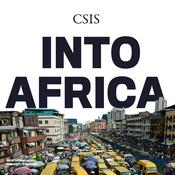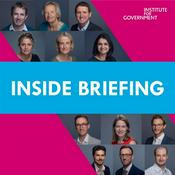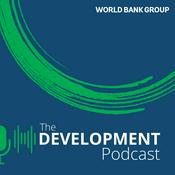48 episodes
Chairman of India-Russia Foundation, Sudhir Pal Sabharwal: "Relations between Russia and India are elevated to privileged partnership"
2026/1/22 | 20 mins.More than five centuries ago the great Russian navigator Afanasy Nikitin voyaged to India, laying the foundations for relations between the two countries. Nowadays the countries cooperate in a number of important areas, among them are education, culture, science and economics.
In what ways is Afanasy Nikitin revered in India? Why is another Russian figure – orientalist Andrey Snesarev – considered an ambassador of culture in the republic?
TV BRICS reporter: Yana PanferovaResearcher at Hanoi University of Science and Technology, Bui Minh Phuong: “In future, I see that every company and every household to use renewable energy”
2026/1/15 | 8 mins.A roadmap for the development of peaceful nuclear energy until 2030, negotiations on the modernisation of hydroelectric power facilities and LNG supplies – Russia and Vietnam intensified their cooperation in the energy sector in 2025. The residents of the republic are convinced that science and technology are the key driving forces for its development.We talked about this with Bui Minh Phuong, a researcher at the Hanoi University of Science and Technology.
TV BRICS reporter: Leonid SamunaDeputy Director of Cameroon National Museum, Etta Ojang Ivan: “Project of Museum of African Cultures in Moscow has great potential for Cameroon and other African countries”
2025/8/21 | 21 mins.Recently, the partnership between Russia and African countries in the field of culture and art has reached a qualitatively new level. This is particularly facilitated by the BRICS platform. In 2017, a decision was made to establish the BRICS Alliance of Art Museums and Galleries to strengthen cultural exchange and cooperation. At the second Russia-Africa summit, the parties went even further and came up with the idea of creating the Museum of African Cultures in Moscow, the world's first museum outside Africa, dedicated exclusively to African themes.
We talked about this with Etta Ojang Ivan, Deputy Director of National Museum of Cameroon.
TV BRICS reporter: Leonid SamunaDirector of Center for BRICS Studies at Fudan University, Shen Yi: “BRICS is very new and innovative mechanism”
2025/7/24 | 23 mins.In recent years, BRICS has entered a new phase of development, expanding both its membership and its strategic agenda. According to experts, this transformation reflects the growing appeal of the group as a platform for equitable global technical, scientific, and economic cooperation.
Infrastructure development, green economy initiatives, and academic collaboration are becoming key pillars of BRICS cooperation. Soft power tools remain equally important – cultural and educational exchanges, expert dialogues, and trust-building initiatives that can bring societies closer together in a multipolar world.
These and other topics were discussed with Professor Shen Yi, Director of the Center for BRICS Studies and Professor at the School of International Relations and Public Affairs at Fudan University.
TV BRICS reporter: Alisa KorolevaSouth African businessman and politician, Marius Fransman: "Let's reimagine South Africa through BRICS agenda"
2025/7/17 | 22 mins.In the 15 years of South Africa's membership in BRICS, the country has become one of the most important members of the grouping and contributes significantly to its work. In 2023, South Africa chaired BRICS, emphasising the importance of "partnership for mutually accelerated growth, sustainable development and inclusive multilateralism". To this day, South Africa continues to actively promote multipolarity and the interests of the African continent. South Africa is assisting its neighbours in infrastructure and technology development, smart cities, and green transition. This year the country is chairing the G20, which contributes to the establishment of a sustainable and equitable dialogue in the group.
We talked about this with Marius Fransman, businessman and politician from South Africa, founder of the People’s Movement for Change political party.
TV BRICS reporter: Leonid Samuna
More Government podcasts
Trending Government podcasts
About BRICS Podcast (EN)
Podcasts about history, economics, domestic politics and international relations in the BRICS countries: Brazil, Russia, India, China, South Africa, Egypt, Iran, UAE, Saudi Arabia, Ethiopia.What new technologies have already been introduced in the BRICS? How will the entry of new countries strengthen the position of the association? How will the BRICS expansion affect the business environment in Russia? How can we speed up the process of creating a new global settlement currency for the BRICS countries?Together with historians, scientists, sociologists, political scientists and authors of popular non-fiction, we will figure out this issue.
Podcast websiteListen to BRICS Podcast (EN), Strict Scrutiny and many other podcasts from around the world with the radio.net app

Get the free radio.net app
- Stations and podcasts to bookmark
- Stream via Wi-Fi or Bluetooth
- Supports Carplay & Android Auto
- Many other app features
Get the free radio.net app
- Stations and podcasts to bookmark
- Stream via Wi-Fi or Bluetooth
- Supports Carplay & Android Auto
- Many other app features


BRICS Podcast (EN)
Scan code,
download the app,
start listening.
download the app,
start listening.
































